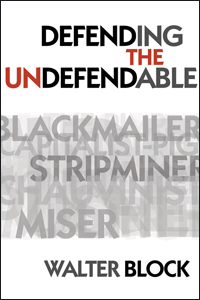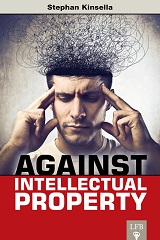
Idag släppte Timbro Medieinstitut en rapport från Nicklas Lundblad som heter ”Tre reformer för offentlighetsprincipen i informationssamhället” och TMI bjöd in till en diskussion om öppenheten. Medverkade gjorde Nicklas Lundblad (vice VD vid Stockholms Handelskammare), Isobel Hadley-Kamptz (författare, debattör och initiativtagare till Juliagruppen), Joakim Jardenberg (grundare av Mindpark) och Henrik von Sydow (riksdagsledamot (m)). Moderator för dagen var Roland Poirier Martinsson.
Nicklas Lundblad inledde med ett väldigt snabbt och sprudlande anförande där han ägnade sig åt att belysa huvuddragen ur rapporten. Lundblad pressade verkligen in flertalet punkter som han delade upp i fem stycken huvudpunkter:
1. Informationsexplosion
2. Nya verktyg
3. Nya medier
4. Aktiv transparens
5. Integritet
Informationsexplosion
Vi lever i ett brussamhälle där i allt snabbare takt fördubblar den totala mängden information. Jag kommer inte ihåg detaljerna, men Nicklas hade räknat på hur snabbt det kommer att ta för hela världens informationsmängd att fördubblas om ungefär tio års tid eller något i den stilen, och kom fram till att det skulle ta 73 dagar (!) att fördubbla all världens information. Dessa cykler får kortare tidsintervaller och frågan vi måste ställa oss är: Hur hanterar vi bruset?
Nya verktyg
Nicklas syftesformulering för rapporten hade utgångspunkten i den grävande journalistiken, som kommer fortsätta att vara av största vikt för samhället om den får rätt verktyg i att kunna hitta relationer och samband i bruset. Visst har vi aktörer som Google som försöker att förenkla det för oss att hitta information, men vi behöver också verktyg som kan jämföra konkordanser, begreppsutvecklingar, statistik etc i dokument som är offentliga handlingar. Idag är inte alla offentliga handlingar tillgängliga i samma utsträckning som t.ex. någon internetmem eller det vi når genom att googla, vilket är ett problem i och med att vi borde sträva efter ökat medborgarengagemang.
I och med att informationssamhället förändras så förändras även massmedier. Det är inte längre lika självklart att Dagens Nyheter eller Svenska Dagbladet kommer med årets ”scoop”, medborgarjournalistik börjar se dagens ljus, då vi kan förvänta oss att även journalisternas verktyg blir tillgängliga för en bredare allmänhet. Om det tidigare har krävts redaktioner för att bidra med kunskap och resurser, har olika publiceringsverktyg givit plattformar och medier som på bred front kan granska vissa företeelser. Jag tror att Lundblad nämnde Castells begrepp ”mass self communication” som ett av många olika sätt i informationssamhället varpå vi kan hacka maktrelationer.
Uppdelningen av offentliga handlingar och allmänna handlingar har fram tills nu varit en tydligt avgränsad och definierad företeelse. Men informationsbruset har förändrat situationen. Idag bloggar politiker, vi har även ospecificerade och odefinierade gränsdragningar mellan det privata och det offentliga, vilket gör att uppdelningen mellan offentliga- och allmänna handlingar påverkas. Jag tror det var von Sydow som nämnde att bara under 2005 så ändrade man (sekretesslagen eller sekretessförordningen) upp till 13 gånger! Hur ska vi stå emot informationsexplosionen om vi måste uppdatera lagar i sådan rasande fart i förhållande till offentligheten?
Skriver Carl Bildt i form av sig själv eller som utrikesminister på sin blogg? Lundblad tog fram ett citat från utrikesdepartementet som tolkades på så sätt att de inte riktigt vet själva om Bildt bloggar privat eller offentligt i en roll som utrikesminister. Maktbloggandet är bara ett område där man måste ställa sig frågan om huruvida detta bör falla in under offentliga handlingar eller ej. Ska man kunna begära ut en hel blogg för att kunna söka samband och kritiskt granska den? Kommer man att kunna begära ut en lista på allt spam som fastnat i Bildts spamfilter? Alla dessa frågor är komplicerade och hitills oprövade.
Nya medier
Arkivering kommer att bli viktigare. Här ska vi inte förstå arkivering som arkivering av data i register, utan arkivering av den offentlighet som Lundblad tycker är viktig att kunna komma åt genom en tidslig uppföljning. Detta relaterar till uttrycket ”guldfiskminne” som kan sägas vara det att få en ”kort” transparens snarare än en ”lång” transparens. I dagsläget kan vi lätt kolla igenom de senaste inläggen från Carl Bildt och se hur han tycker och tänker just nu, men hur gör vi över en längre tidsperiod? Hur motverkar vi glömskan av information som vi ena dag läser om och som vi nästa dag har glömt bort?
Medier har förr haft en direkt medierande funktion i vårt samhälle, de kunde mediera makten direkt. I dagens informationsbrus är det inte alltid lika kategoriserat och avgränsat som förr. Informationsexplosionen kräver en viss ”informationsmärkning” enligt Lundblad, där man problematiserar och konkretiserar informationens karaktär, produktion och innehåll.
Aktiv transparens
Varför ska vi avgränsa? Utgångsläget bör vara en aktiv transparens, men hur kan vi utöka denna? Lundblad tänker sig att vi skulle kunna införa besöksloggar för myndigheter och departement så att man kan se vilka som rör sig i maktens korridorer och vilka som har insyn i det byråkratiska och det politiska. USA har infört liknande besöksloggar för att öka transparensen och varför skulle inte ett land som Sverige kunna anamma samma sak? Jag tycker personligen att Sverige med dess offentlighet och dess öppenhet är något unikt som vi måste värna om, om vi inför besöksloggar till maktens korridorer så är det ett av många sätt varpå vi skulle kunna uppdatera den öppna offentligheten.
Ett annat sätt att förbättra öppenheten vore om sök- och formatverktyg för både medborgare och myndigheter kunde utvecklas. I dagsläget finns det inte ens en sida som samlar alla remisser som skrivs, vilket visar på att detta är både ett problem för makten och för medborgarna. Hur ska medborgare bli mer politiskt engagerade och intresserade för politik om inte ens rådata eller olika handlingar blir sökbara och överblickbara? Lundblad menar att ett vanligt argument för att inte skapa fler e-dokument är att myndigheter inte har råd. Här har Google visat sig effektiva i hur de själva inleder en process där de skapar och tillhandahåller sökbara elektroniska dokument för allmänheten. Tänk om det vore enklare av aktivt tillgängliggöra sig handlingar tycks vara Lundblads vision.
Integritet
Det råder delade meningar om vad ett transparent samhälle kommer att leda till. Diskussionen är på många sätt tvådelad: Kommer samhället att förändras till det bättre eller sämre och ska vi lösa eventuella problem på det ena eller det andra sättet? Uppdelningen och motsatserna är olycklig eftersom den visar på många många intressanta glidningar utifrån vart transparens och integritetsvärnet är på väg. Vi bör inte prata om den ena eller den andra lösningen som att det ska finnas ett och allena synsätt på ett givet område. Det är inte meningen att vi ska avtäcka gränser för att upprätthålla dom, det är meningen att vi ska avtäcka gänsdragningar för att kunna förstå någonting på ett bättre sätt. En alltför hård kategorisering skulle innebära att vi ställer upp ytterligare problem för oss själva om samhället står in för än mer samhällsomvälvande fenomen än internet.
Är inte det här med att kategorisera lite paradoxalt? Anledningen till att vi håller den här diskussionen vid liv är ju att vi har insett att kategoriseringen inte håller, att vi måste ”patcha” lagar stup i kvarten och att det må vara fel angreppssätt, eller? Å andra sidan behöver vi definiera nya fenomen och hur de påverkar synen på offentligt/privat samt transparens och integritet. Hur kan vi ägna oss åt mer uppöppnande definitionssnickrande snarare än statiskt inlåsande av kategorier? Och hur kan vi utveckla lagmässig plasticitet och göra lagar mer anpassningsbara till vår samtid? Jag håller faktiskt intuitivt helt med Jardenberg här att man bara ska låta utvecklingen ske, anpassningarna kommer med tiden, både från medborgarperspektiv och från makten. Jag kan lika gärna passa på att ifrågasätta definitionen av ”makten”, av den simpla anledningen att så länge vi inte vet vilka som verkar i maktens korridorer (besöksloggarna revisited), kommer inte ”makten” vara ett genomskinligt begrepp.
Den digitala glömskan är en intressant infallsvinkel, men hur ska detta realiseras? Om jag är med i låt oss säga 50-100 register (vilket jag inte tror att jag är för jag har svårt att föreställa mig detta, eller ens få det bekräftat), hur ska den digitala glömskan hanteras? Här tänker jag mig att vi måste komma fram med fler begreppsramar för att ens inleda projektet med att ställa upp parametrar och kunna föreställa oss verktyg och tider för hur en viss typ av information ska sparas eller inte. Här snuddar vi vid vad datainspektionen borde utreda och dessutom att datalagringsdirektivet kanske inte ska på plats om vi aktivt vill arbeta med att låta information få ”försvinna”. Om det från borgerligt håll är av intresse att låta register få glömma information, eller att privat identitet kan göra det möjligt för människor att ta sig ut ur register, då tycker jag inte att de borde ämna att införa datalagringsdirektivet. Intuitivt sett så motverkar dessa två fenomen varann.
Pandeldebatt
Denna debatt inleddes med panelrepliker på vad Lundblad hade pratat om och gick senare över till en mycket kort debatt om de olika begreppsligheterna och infallsvinklar som Lundblad hade. Överlag innehåller rapporten många originella inslag, men panelen kom tillsammans med bred kritik som jag ska försöka återge nedan.
Jardenberg menade att ”brussamhället” utvecklas med ”best practice” där en införd tröghet bara skulle vara kontraproduktivt för de problem och de möjligheter som ligger bortom nätkrönet. Verktygen kommer att utveckla sig själva, sade jardenberg, och jag ser verkligen framför mig hur lagar och annan byråkrati som har och göra med kategoriseringar, informationshantering, sökningar, slagningar, register etc. kommer att bli omsprunget av informationsexplosionen. Detta är uppfattar jag liksom Jardenberg inte som något ont per se, utan en möjlighet att släppa på rådatan och ha öppna api:n så att fler människor kan engagera sig i remisskrivningar, databassystem, hantering av rådata, skapandet av verktyg, informationshantering, informationstolkning och kritik av maktspektrats byråkratiska apparat.
Jardenberg ställde frågan: Var behövs åtgärderna? Från Lundblads perspektiv kanske det var en statlig fråga och från Jardenbergs synvinkel så var det snarare någonting av mer offentlig karaktär. Vi behöver komma bort från begreppet ”handling” och Jardenberg frågade även hur vi ska hantera arbetsmaterialet?
Jardenberg hade invändningar mot Lundblads NIX-liknelse som jag tror Nicklas ämnade att koppla samman med hans tanke på ”opt out” från register etc. med hjälp av en privat identitet. Men Jardenbergs kritik av digital glömska var tydligare; kommer det inte bli så att det upprättas skuggdatabaser i de offentliga registrens frånvaro? Vi kan på intet sätt skydda oss mot detta om datan en gång väl har funnits som ”offentliga handlingar”.
Henrik von Sydow fick till slut ordet och pratade mycket om sekretesslagen och sekretessförordningen. Dessa har under senare år patchats väldigt mycket och det blir svårt för journalister att få en överblick över det om de inte har verktyg att spåra förändringarna. Här kunde man lägga in en push för Wikis, där man kan ersätta stora informationsmängder med andra för att sedan trycka på ”history” och på så sätt få fram exakt vilka formuleringar och ord som är annorlunda mellan två stycken versioner av en viss handling. Hur vore det om någon/några tar på sig att göra detta för sekretesslagen och sekretessförordningen? Så att man enkelt kan se de mest uppdaterade versionerna och kunna gå tillbaka till dess införande i Svea Rikes lag. Hur häftigt vore inte det (såtillvida man är jurist och har skills)?
Von Sydow tror att ny teknik kan ge ett ökat intresse för politiken. Om medborgare bara kunde få tillgång till ökad sökbarhet i alla offentliga register etc, så trodde han att det skulle uppstå mer engagemang för de aktuella diskussionerna som är kopplade till öppenhetsbegreppet.
Isobel Hadley-Kamptz fick sen ordet och gick direkt in på tanken om nätet som ett problematiserande av kategoriseringar. Nätet ser vi som både något privat och offentligt och de vanliga reglerna kan inte snappa upp de här glidningarna på bra sätt. Således bör vi problematisera mer kring uppdelningen mellan privat och offentligt, kan vi ens göra denna uppdelning? Kommer det visa sig vara ofruktbart?
Isobel tog upp transparens i förhållande till anonymitet som något viktigt. Är det inte så att vi med hjälp av bruset kan dölja oss själva? Att vi har flera olika ”masker” annat än det privata att ta till med hjälp av internet? Isobel menar att det finns en potential till anonymitet i ”bruset” och att bruset är någonting mycket bra för individens rätt till anonymitet.
Transparensen kan på sikt även göra oss mer toleranta, och om vi vänjer oss vid detta kanske det inte kommer att vara problematiskt. Personligen har jag svårt att tänka mig eventuella konsekvenser av ökad transparens, men min allmänna tanke är att konsekvenserna kommer att påverka de som inte redan har valt att bibehålla sin anonymitet på internet. Sett till politik och politiska institutioner finns det ingen tvekan från min sida att transparens är någonting av yttersta vikt.
Martinsson ställde följande fråga till von Sydow: Kan man begära ut opublicerade kommentarer från Bildts blogg? Von Sydow svarade att han inte visste och att det är någonting som antagligen kommer att behöva prövas och definieras innan det går att säga något mer angående Bildts spam.
Nicklas fortsate att ge en kommentar till Isobel och sade att det att ”tala om sig själv” är något nietzscheanskt och att det i ett transparent samhälle kommer vara svårt för alla att kunna gömma sig. Integriteten spelar fortfarande en stor roll för Lundblad och han ifrågasatte att toleransen som kan uppstå av ökad transparens, skulle komma ses som något universellt.
Kom inte ihåg vem som sade detta men jag tror att det var Jardenberg eller Nicklas: ”Privat identitet är systemfrämmande”.
Isobel kom tillbaka med kritik av identitetsbegreppet, som hon menade inte alls är enhetligt. Vill vi ens ha en enhetlig identitet? Jag är en person offentligt, jag har en identitet bland mina vänner och jag har en identitet på nätet. Vilka andra typer av identiteter kan man ha idag? Identitetsbegreppet är långtifrån enhetligt som definition.
Jag uppfattade det som att Isobel var skeptisk till tanken om att vi kommer att kunna avskärma oss från samhället. I och med att vi både har ”panopticon” och ”panspectron” som övervakningscheman i samhället, börjar det bli allt svårare att stiga åt sidan från samhället när vi av någon anledning känner för det eller behöver det.
Jardenberg fortsatte med att tala om full transparens och att vi ska låta det hända utan ett tröghetsskikt som implementeras från myndighetshåll. Det kommer att bli allt viktigare att verkligen sätta fingret på vilka verktyg som måste tillkomma och vad som myndigheter kanske ska överlåta till den granskande journalistiken eller medborgare att tycka till om i samband med offentlighetsprincipen. Vi är ju tillsammans samhället i den fulla transparensen.
Martinsson talade om regleringar, vilket inte kom som en överraskning. Men vi måste beakta, som Isobel var inne på, att internets utveckling har ju skett i relativt fredlig och öppen form fram tills nyligen. Visst har det funnits problem och regler sett till uppbyggnation av infrastruktur och trafikskötsel, men i det stora hela har internet varit enormt positivt för alla samhällen som har valt att tillhandahålla internetuppkoppling till sina medborgare. Jardenberg menar att vi håller på att bli en ny sorts människor på grund av den ökade transparensen, medan Lundblad tycker att vi däremot går tillbaka i utvecklingen. Lundblad nämnde gesellschaft (hoppas han menade detta begrepp) som exempel på denna utveckling.
Isobel problematiserade även denna uppdelning och konfliktsyta mellan det gamla och det nya. Att avgränsa och stirra sig blind på motsatser (eller två enskilda möjligheter eller definitioner) tycks vara fel väg att gå och minskar känsligheten för det att lagmässiga och offentliga kategorier redan är problematiska.
Martinsson öppnade upp för publikfrågor och någon frågade: ”Hur kan man välja bort ett antal register” Dvs. hur kan man ta bort sig själv som privatperson ur register. Isobel visste ej, men sade bestämt att vissa register borde inte finnas överhuvudtaget.
En annan publikfråga handlade om att lagstiftandet borde skydda dom ”svaga” mot felaktig eller dålig information. Von Sydow svarade att det borde finnas rättsmedel och verktyg för upprättelse.
Ytterligare en fråga från publiken berörde hur EU-lagstiftning påverkar svensk lagstiftning och försvårar transparens etc. Jag tror det var Von Sydow som svarade något i stil med att de svenska registren, som diskussionen rörde sig kring, inte är EU-verk.
Även om debatten var mycket kort så han panelisterna få ur sig en hel del kritik och tankar som är värda att spinna vidare på: Ska vi kategorisera mer eller mindre? Ska vi uppdatera offentlighetsprincipen? Ska vi se ökad transparens som ett problem eller som en möjlighet? Ska vi låta informationsexplosionen bara få ske eller skapa trögheter? Hur får vi medborgare att engagera sig mer i öppenhetsdiskussionen?
Tyvärr har jag inte tid att skriva en längre genomgång av Lundblads rapport, men jag hoppas att andra kommer att göra det framöver. För mer information om rapporten samt tillgång till PDF-dokument se här.







































![[Most Recent Quotes from www.kitco.com]](https://i0.wp.com/www.kitconet.com/charts/metals/gold/t24_au_en_usoz_2.gif)
![[Most Recent Quotes from www.kitco.com]](https://i0.wp.com/www.kitconet.com/charts/metals/silver/t24_ag_en_usoz_2.gif)
![[Most Recent Quotes from www.kitco.com]](https://i0.wp.com/www.kitconet.com/charts/metals/platinum/t24_pt_en_usoz_2.gif)
![[Most Recent Quotes from www.kitco.com]](https://i0.wp.com/www.kitconet.com/charts/metals/palladium/t24_pd_en_usoz_2.gif)
![[Most Recent Quotes from www.kitco.com]](https://i0.wp.com/www.kitconet.com/charts/metals/base/copper-d.gif)
![[Most Recent Quotes from www.kitco.com]](https://i0.wp.com/www.kitconet.com/charts/metals/base/nickel-d.gif)
![[Most Recent Quotes from www.kitco.com]](https://i0.wp.com/www.kitconet.com/charts/metals/base/aluminum-d.gif)
![[Most Recent Quotes from www.kitco.com]](https://i0.wp.com/www.kitconet.com/charts/metals/base/zinc-d.gif)
![[Most Recent Quotes from www.kitco.com]](https://i0.wp.com/www.kitconet.com/charts/metals/base/lead-d.gif)


1 Svar to “Öppenhetens gränser”